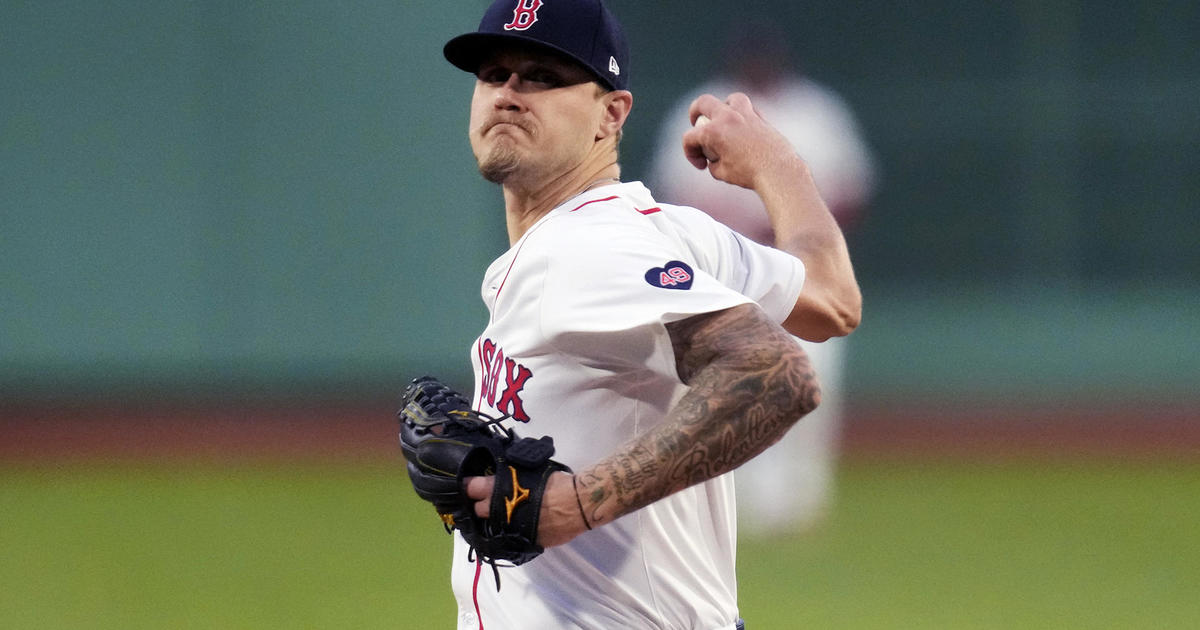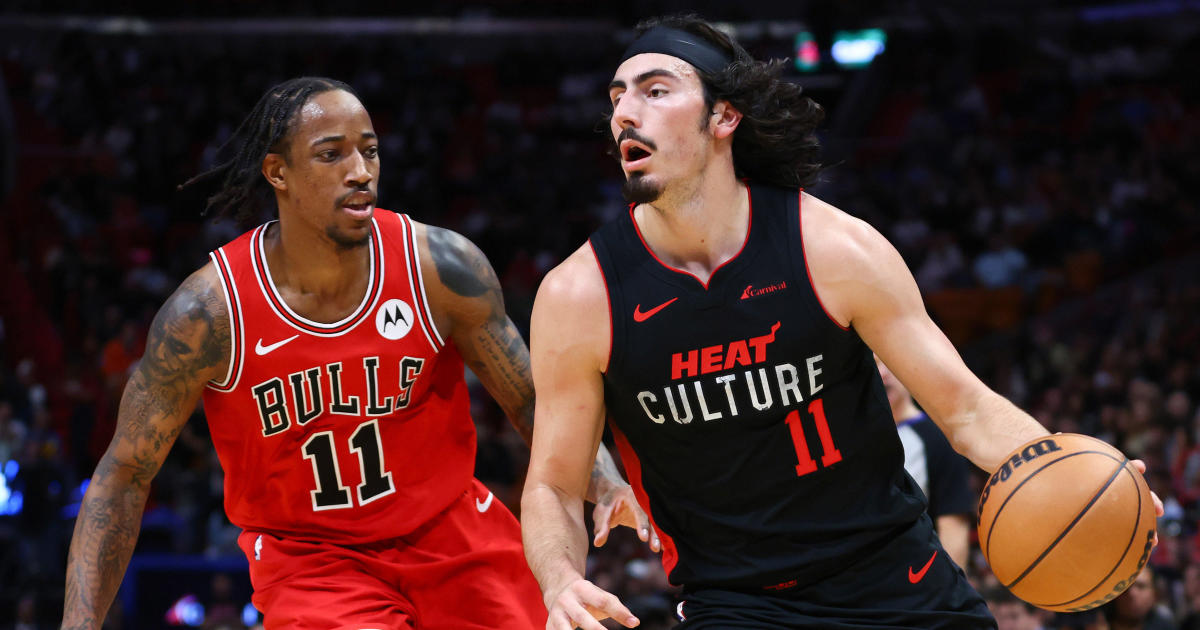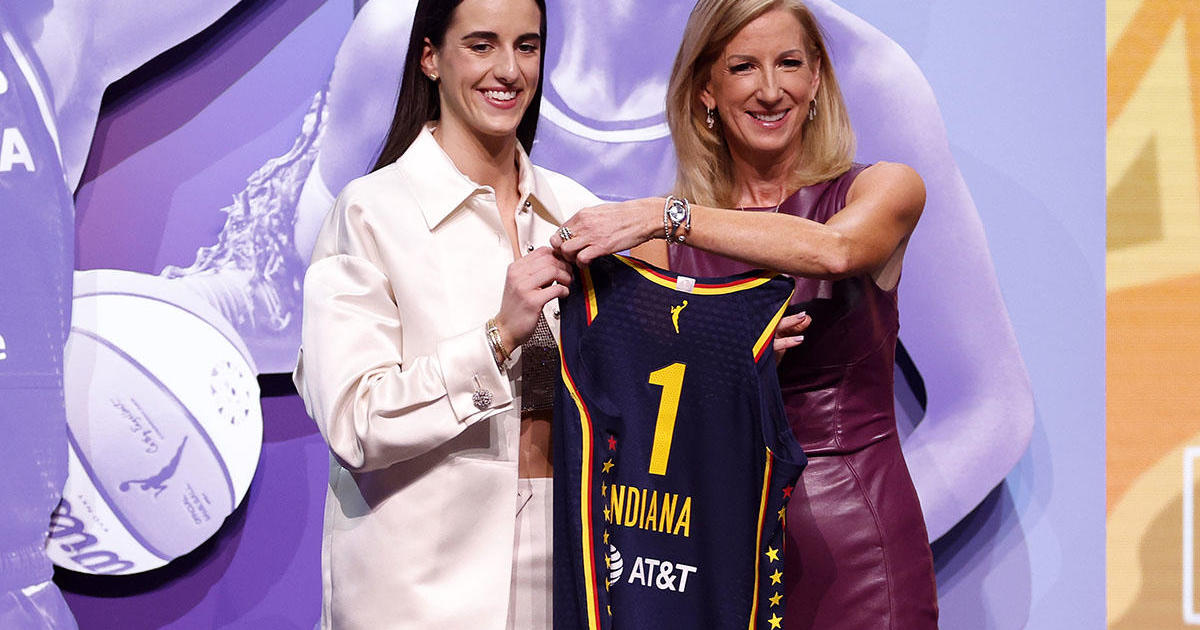Utah Columnist Trashes Gordon Hayward's Character After Free Agent Signs With Celtics
By Michael Hurley, CBS Boston
BOSTON (CBS) -- Every now and then, a professional athlete gets ripped in the media for doing something. Maybe he got arrested, maybe he threw a teammate under the bus, or maybe he did something else that might be considered wrong.
And then, sometimes, a professional athlete gets ripped for ... breaking a Peter Pan-esque fantasy where players stay with one team for their entire careers.
That's where we are on Wednesday, after Salt Lake Tribune columnist and Utah radio host Gordon Monson wrote a scathing takedown of Gordon Hayward in what reads as much like a breakup letter as it does a newspaper column.
Obviously, emotions were raw when Monson wrote the story, which was headlined, "Goodbye, Gordon Hayward, whoever you are."
The strongest shot at Hayward's character had to do with the star seeking an easy route. Some excerpts:
"[Hayward] was ducking out down a back alley, looking for the easier route."
"He'll no longer have to deal with the Warriors and the Spurs and the Rockets and the rest of the West, where real basketball is played, preferring to take on the softies in the East, and then, eventually, when all the exhibitions are done, LeBron."
"That's what Hayward wants, that's what we didn't know. He wants it easier."
It's fair to say that the path to the conference finals and even the NBA Finals is much easier in the East. Only a fool would argue otherwise. But "ducking out down a back alley" is a bit dramatic, even if it does paint a nice scene.
Interestingly enough, Monson contradicts this accusation by noting that life will be tougher for Hayward in Boston.
"Fenway, Schmenway. Boston fans might cheer him now. Wait until he doesn't win a championship."
"Hayward will get his scoring chances from a ball-dominant point guard, Isaiah Thomas. ... Instead of being the man, he'll be just a guy, just a dude."
"He'll get ripped when he disappoints in a way that was relatively rare in Salt Lake City. If he doesn't live up to expectations, even just on some nights, he'll get booed, big time, the way they do it downtown, especially when the Sam Adams is flowing."
I'm going to have to interrupt this portion of the story to go back over that sentence. THE WAY THEY DO IT DOWNTOWN! When the Sam Adams is flowing! All them cool cats on the block who know what's happening downtown! What a sentence. OK, back to it.
"He'll have to explain his statements, recorded on video in days gone by, about how much he dislikes New England demigod Tom Brady."
All right, so, if we're getting this straight, Hayward chose Boston because it's easier and he likes things to be easy, but yet he's adding all of these new challenges to his life? Challenges which he would have not had to deal with if he had chosen to stay with the Jazz? And yet he chose to take on these challenges because ... he prefers the easy route? Is that what we're saying?
To be honest, Monson is off the mark with the "wait until he doesn't win them a championship" line, but it's hard to blame him. Boston does have a reputation for being hard on athletes (David Price on line two), but more than any other group in the city, Celtics fans rally around their players like no other. Ask an average Celtics fan about whether he or she would rather see Avery Bradley, Jae Crowder or Marcus Smart traded away to make room for Hayward, and you're going to need to clear 30 minutes off your schedule as the merits of each player are properly extolled. Celtics fans came out in droves and cheered their happy little heads off even while the team played in competitive games while tanking four seasons ago.
The Celtics ranked 11th in the NBA (by percentage) during that painful 28-54 season. The next year, Gigi Datome became a fan favorite. Gigi Datome!
Hayward will be loved by Celtics fans. There should be no doubt.
Moving on, another contradiction comes when Monson argues that Boston fans and media will be unduly harsh on Hayward, but Monson also shares numerous examples of Utah fans and media being unduly harsh on Hayward:
"The fans booed his selection on draft night."
"When they hesitantly did pay him after Charlotte offered him [max money], some meanie [Monson himself] in the press said the Jazz were paying for a Lamborghini and getting a Buick."
So ... Boston will be unfair to him ... but Utah wasn't? Is that what we're saying? Again, I'm just trying to follow along.
Look -- there will no doubt be yakkers on the radio harping on the negatives of Hayward's game and contract, but it's not difficult to ignore those voices when there are 18,000 people cheering you every night. (David Price, still on hold, would like a word.)
Oh, and there was also this:
"The Jazz money was stacked higher than the Celtics money was, which should have spoken to Hayward."
You just don't often see a player criticized for following the path that he feels is right, even if that means taking less money. (Provided, of course, that player doesn't hold a TV special on ESPN to make the announcement.)
For the sake of brevity, let's wrap this thing up with one more comment from Monson:
"Look, this was Hayward's decision. It was a personal decision. And Hayward made it personal, stumbling and bumbling around with it.
"He leaves behind the team, the people, who may not have been perfect but that were fine enough to help develop him into the player he is. That says something about who and what Hayward is, as a competitor, as a man."
Let's put a brighter spotlight on one portion of that:
"Hayward made it personal, stumbling and bumbling around with it."
Now that ... that is rich.
While it was pretty clear to everybody following the Hayward saga on July 4 that the announcement didn't quite go so smoothly, that does not appear to be Hayward's fault. Someone leaked the information, and then Hayward and his agent had to walk it back in order to make the announcement on his own terms.
And when Hayward did make the announcement, he did so in the form of a very thoughtful, very respectful essay on The Players' Tribune. It clocked in at 2,121 words, and he used that ample space to thank a number of people who helped him become the player and man he is today. It was titled, "Thank You, Utah." He addressed the fans and thanked them. He spoke personally about the owner, about the team president, about the head coach, about the assistant coaches, about the massage therapist, about the strength coach and about former teammates.
Hayward wrote, "I also feel like this city helped raise me. And I feel like this city took me in, as part of its own family. And I just wanted to say thank you for that. And thank you for everything."
Hayward then carefully explained why he wanted to sign with Boston and what he hopes to accomplish there.
Again, this was a well-thought-out, articulate and (if one does not want to be overly cynical) honest statement from a player leaving a city. Based on the way things played out Tuesday, it's safe to surmise that writing this personal essay was of great importance to Hayward.
Yet, according to a columnist (who perhaps as a fellow "Gordon" wishes he had been on that long list of thank yous?), Hayward was "stumbling and bumbling" around with his personal life decision, which reflects poorly on who Hayward is "as a man."
Someone in this equation was certainly stumbling and bumbling. It was not Hayward.
You can email Michael Hurley or find him on Twitter @michaelFhurley.



